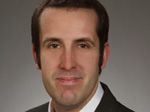Back to School Special! First Month’s Tuition – $127
If it’s fall, it’s back to school. It’s all about learning, educating ourselves, expanding our minds and putting all that knowledge to use in exciting, creative and profitable ways. And we’re all about the exciting, creative and profitable ways for you to finally be your own boss. That’s why we’re offering this amazing Back to School Special. Check it out! And share!




























